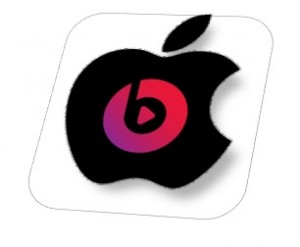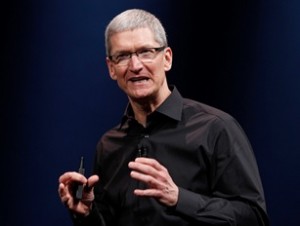 Whenever one company buys another, you typically hear terms like “efficiencies” or “economies of scale.” Translation: “Downsizing,” because that’s what often happens when one company buys another.
Whenever one company buys another, you typically hear terms like “efficiencies” or “economies of scale.” Translation: “Downsizing,” because that’s what often happens when one company buys another.
The workforce often goes into a panic, job slashing is imminent, and the cultures will inevitably clash. Or pieces will be sold off because they are “redundant” to the good of the new entity.
And it almost always becomes obvious that the one company will dominate the other because they’re smarter, sharper, or because their brand is better positioned to succeed. Or so they often think.
But that’s not the message the industry is getting from Apple about its acquisition of Beats Music, and perhaps corporate America should be taking notes. An interview with CEO Tim Cook with Re/code’s Peter Kafka’s reveals a very different way of thinking about the new members of their team. I’ve pulled a few Tim Cook quotes that illustrate something very different here, and perhaps a few lessons for any company thinking about buying out another.
First, there’s the passion piece, a big driver of this deal, and Cook is most definitely channeling the ghost of Steve Jobs:
“…we’ve always loved music and believed in the power of it and believed that it could transcend language, culture and bring people together and produce emotions and deep feelings that others can’t. And we’ve stood at the intersection of technology and the liberal arts. So I see this right in the – if you were drawing a line, this would be the logical next data point.”
Second, this is not about next quarter or even next year. According to Cook, Apple’s acquisition of Beats is a long-term process. While he believes that it won’t be long before the profits are rolling in, that’s not what this acquisition is about. Given the roiling nature of music, media, and technology, Apple is looking at this play through the long lens of the telescope:
“…it’s because we always are future-focused. So it’s not what Apple and Beats are doing today. It’s what we believe pairing the two together can produce for the future.”
 Third, this deal is very much about people. You may think that $3 billion is a lot to pay for two guys and their respective teams, but Cook feels he got a bargain. Even though Apple wrote the book on the sales and marketing of digital music, there’s a realization that true vision and growth are about the human resources in this deal, starting with Jimmy Iovine and Dr. Dre. These guys aren’t just smart or talented – they’re connected, credible, and they speak the same language as the musicians, writers, and performers who make up the true content foundation of this deal:
Third, this deal is very much about people. You may think that $3 billion is a lot to pay for two guys and their respective teams, but Cook feels he got a bargain. Even though Apple wrote the book on the sales and marketing of digital music, there’s a realization that true vision and growth are about the human resources in this deal, starting with Jimmy Iovine and Dr. Dre. These guys aren’t just smart or talented – they’re connected, credible, and they speak the same language as the musicians, writers, and performers who make up the true content foundation of this deal:
“The thing that Beats provides is a head start. They provide us with incredible people that don’t grow on trees. They’re creative souls, kindred spirits. The point is that Jimmy and Dre have built something phenomenal. And they have phenomenal skills. And we can begin, the instant that this deal is approved, working on the future together. And I think that future is better than either company could create on their own.”
Trying not to read too much into it, Apple is a company that lost its iconic leader nearly three years ago. And now the more sedate, cerebral Tim Cook may be thinking that when a couple of rock stars like Iovine and Dre want to do a deal like this, and become Apple employees….well, that’s a CEO smart enough to hire to his (and perhaps his company’s) weakness. None of the other music services – from Pandora to Spotify to the oddly timed brand new entry Amazon – features the human, celebrity factor. And that iconic music god piece had to figure heavily into Apple’s calculus.
So, what are the characteristics that make the Apple/Beats deal different from the typical new media acquisition?
Future focus.
Passion.
Rock star talent.
These are the same elements that not coincidentally build great companies and incredible brands.
And the personality piece is something that radio should take note of because it is now a big factor in what sets Apple apart – from other pure-plays, as well as every social media channel, too.
In much the same way that unique, local personalities, DJs, hosts, and shows are the “X factors’ for broadcast radio in its competitive challenge against digital media outlets everywhere.
Smart deal.
- Media And Technology In 2025: Believe It Or Not! - April 18, 2025
- In Radio, You Just Never Know - April 17, 2025
- The Secret To Making A Great Podcast (And Great Radio) - April 16, 2025




Financially it’s a much bigger deal to Beats than it was to Apple as they have more money sitting in cash than was spent on ALL Radio Advertising in the last 3 years combined
But that fact also let’s me take Cook’s vision more seriously. Like you already said – Apple didn’t do this because they need to make their balance sheet look better. Apple did this to lay a path toward the future of Music delivery – and it just so happens to come along with a high margin fashion hardware business to pay for it and 2 of the most forward thinking Music Executives alive today.
But I was actually more facinated by Iovine’s comments. He sounded like a Radio person in his dismissal of algorithms and need for human curation. That (was) is the promise of Beats Music – and how he’ll have the power of Apple to bring it to life without the pressure of it needing to be a profit center.
We talk of curation as a unique asset of Radio. But is it really so unique and special that PurePlay services could NOT do it?
Pandora and others have already experimented with celebrity and artist stations – these are the first baby steps of the PurePlay services into Personality Curation.
The key to curation is trust building. And as we know – that takes time. But let’s not kid ourselves – while Radio coasts on the still present notion that the DJs are picking the music – PurePlays will make in-roads in this space – and new “Stars” of curation will emerge.
But that means we can make our own new Stars in that space too! The prime function of Digital is that anyone can make any form of media they want. And they should. I find that fact to be the most fascinating and exciting opportunity of all!
Good points, Jeff. And they support the notion that we emphasized in the results of Techsurvey10 that broadcast radio needs to come to the realization that they no longer just compete against the other stations in town, but against everybody. Broadcasters have huge advantages over pure-plays – IF they step up and realize them. Thanks, again.